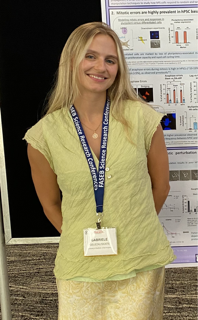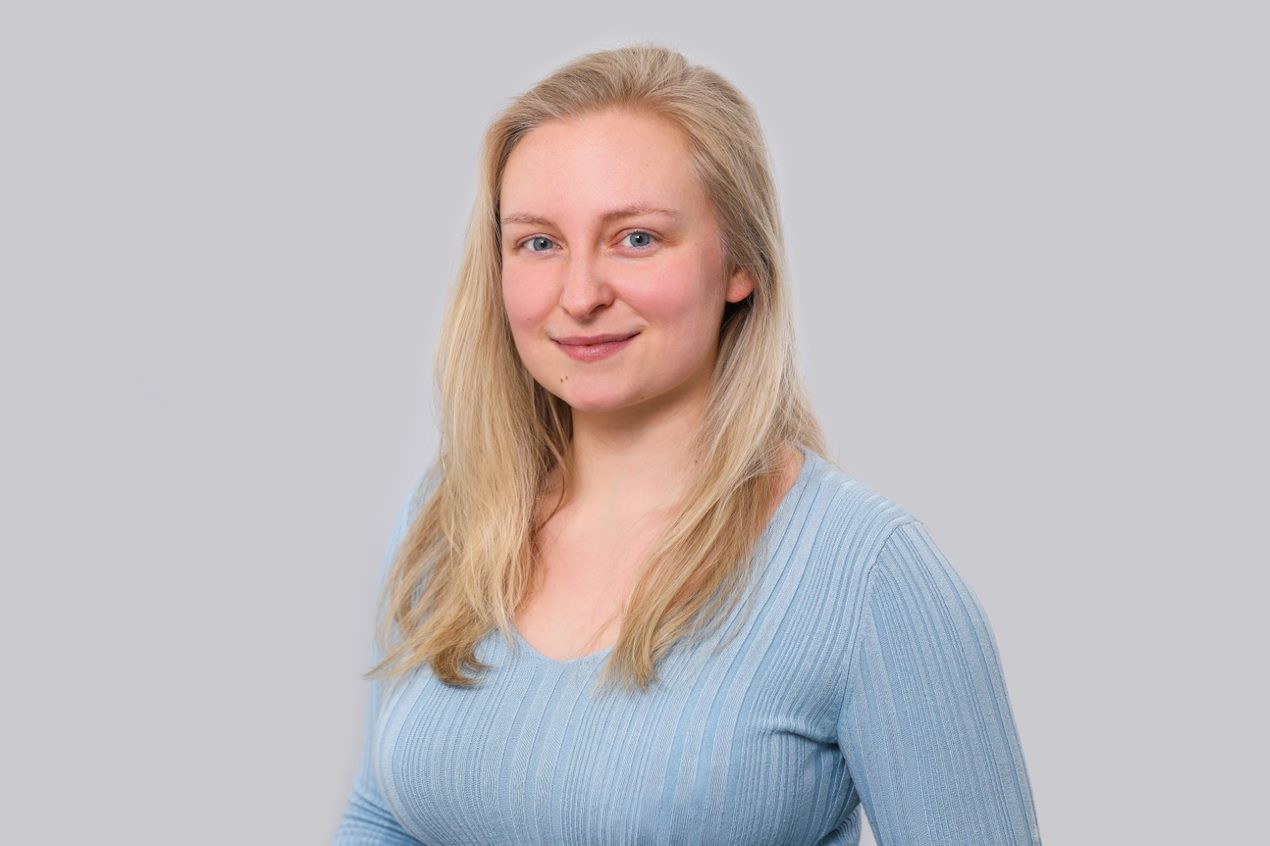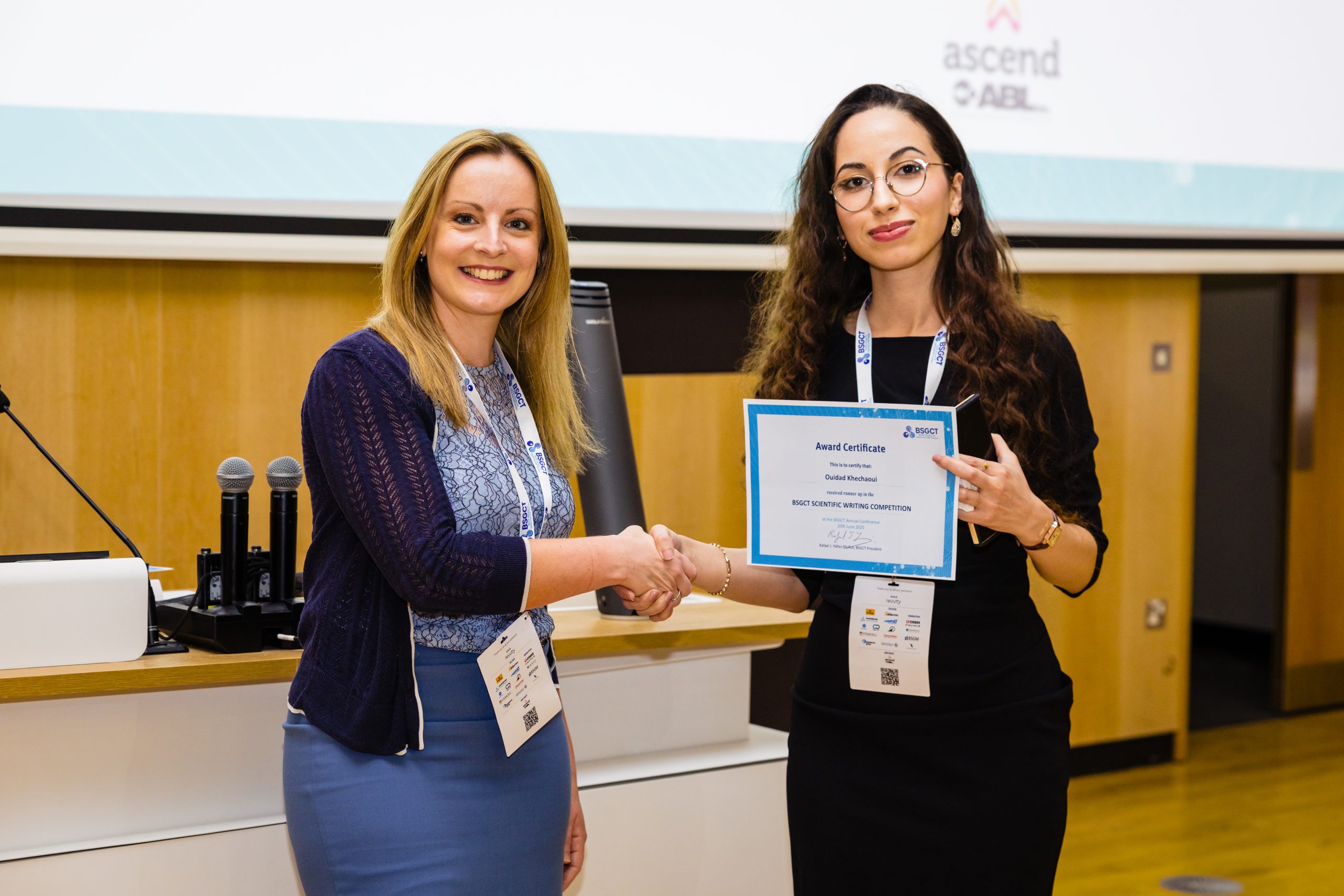Gene-ious at Work: Editing the Future for Patients with Sickle Cell Disease By Lucy Williams, PhD…

Researcher Spotlight: Gabriele Gelezauskaite
Biography:
I am a final year iCASE BBSRC AstraZeneca-funded PhD student at the University of Sheffield in Professor Barbaric’s lab, investigating the mechanisms and consequences of genetically variant human pluripotent stem cells (hPSCs) and their implications for regenerative medicine. Specifically, my project focuses on how errors during cell division result in aneuploidy (abnormal number of chromosomes) and the impact on cell fate. Before my PhD, I earned my BSc (Hons) in Biomedical Science with a year in industry from the University of Sheffield, where I focused on genetic stability of hPSCs. During my industrial placement year at AstraZeneca, I worked in in vitro preclinical oncology safety, assessing the haematotoxicity of epigenetic cancer drugs. I am an active member of BGSCT, ISSCR, and FIRM (ECR-led regenerative medicine society) and work as an associate for Outsmart Insight, where I help to bridge science innovations and business development.
What got you interested in this field of research?
My interest in cell therapy began during my placement at AstraZeneca, where I saw firsthand the potential of using cells to treat life-threatening diseases. I was particularly fascinated by pluripotent stem cells and their ability to generate any adult cell type, making them promising candidates for curing currently untreatable conditions like Parkinson’s disease. However, I also became acutely aware of the safety challenges with developing a cell therapy, highlighting the need for rigorous assessments and a deeper understanding of cell mechanisms. As such, upon my return to university, I pursued research in genetic stability of hPSCs, refining my focus on understanding how aneuploid variants emerge and their consequences on cell fate.
What is your favourite, or most surprising, scientific finding/research question?
One of the most intriguing aspects of my research is the aneuploidy paradox: while aneuploidy often provides a growth advantage in hPSCs, it is typically harmful to cells and organisms, including the developing human embryo. This raises key questions: Firstly, why, and under what conditions, do some aneuploid pluripotent cells thrive, while others do not? And secondly, how does this affect differentiation efficiency and, ultimately, cell therapy safety and efficacy? Answering these questions is crucial for developing strategies to selectively eliminate or prevent emergence of aneuploid cells, to advance the field for clinical application.
What do you like to do when you aren’t researching?
Beyond the lab, I am passionate about science communication and helping translate academic research into medical innovations for patients. I enjoy organising and participating in interdisciplinary events that foster collaborations between researchers, industry experts, and entrepreneurs—such as the FIRM 2023 meeting—believing that these interactions drive scientific breakthroughs. I actively follow advancements in cell and gene therapy to understand the current challenges faced in progressing safe, effective treatments to patients, and where applicable, apply these insights to my own research. Following my PhD, I hope to contribute my expertise towards the development of safe and efficacious cell therapies for routine clinical use.
What made you decide to get involved with the BSGCT and what are the advantages that BGSCT involvement has brought you?
I joined BSGCT to connect with researchers and industry leaders in cell and gene therapy, expanding my knowledge and professional network. The annual meeting is a fantastic platform for this, offering diverse talks, research presentation opportunities, and insightful discussions with experts. In 2023, I was honoured to receive the Best Oral Presentation Award, which boosted my confidence in science communication as an ECR. Beyond this, BSGCT provides engaging webinars with leading experts, keeping me up to date with the latest advancements, and actively supports ECRs through generous travel bursaries. This year, I was awarded the BSGCT ECR Travel Bursary to attend ISSCR in Hong Kong, which is an exciting opportunity to learn from and connect with leaders in stem cell biology, as I shape the next steps of my career.



